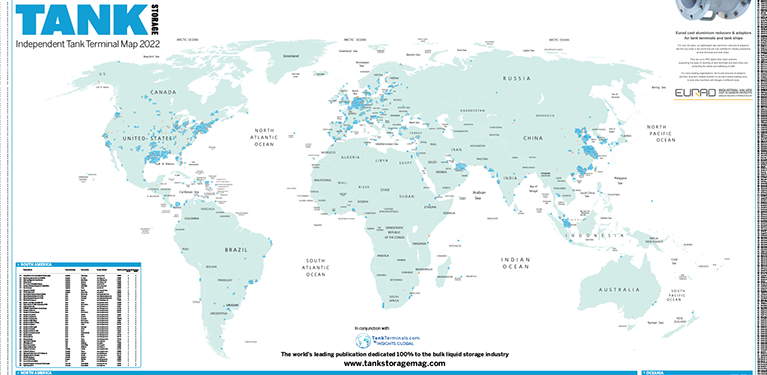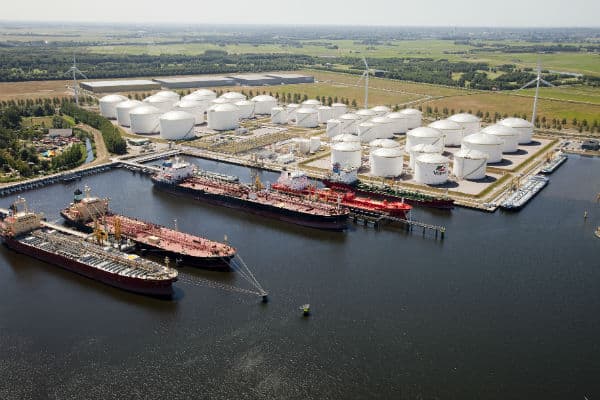RB: We seem to be in a new era of great power competition leading to isolationist and protectionist tendencies; rather than cooperation between trade blocs in a global community. Do you see this negatively impacting international trade movements or are economies too integrated to be impacted by geopolitical trends?
Official: Almost certainly there will be a negative impact and less trade movements. It is relatively easy to erect direct and indirect trade barriers when a country decides to take protectionist measures and endorses more isolationist policies. In a short time such isolationist and protectionist measures can cause a meaningful drop [off] in GDP, and this could mean that integration maybe reversed on the long run.
This will inevitably have a concrete impact on domestic prices as cost of goods and tariffs would rise, in part due to higher input, manufacturing and labour costs and because local industries that are protected from global competition inevitably become less efficient and less competitive, all of which would lead to customers ending up paying more for goods and services in their countries.
RB: At EU level there is a new push towards an EU industrial policy. One objective is to strengthen European businesses. Some have said this is protectionism and a withdrawal from the international community. What are your views on the best way to strengthen European enterprise without withdrawing from the international community?
Strengthening European businesses does not necessarily have to come with higher prices resulting from protectionism and the other negative consequences that withdrawal or more limited engagement at international forums would bring about. The goal to strengthen EU competitiveness and European industry is a very good policy objective and there are different, much better ways to achieve it. A “good” industrial policy does not protect specific companies but foster and invest in innovation, research and development, and improves both higher and vocational education. Such “good” industrial policy does not pick winners; instead, it focuses on specific sectors where there is a market failure or where there is not enough investment by the private sector.
To reap the full benefits of our investment in R&D, education, training etc. one should try to maintain an open global economy characterized by similarly open, reciprocal trade policies on the part of our trading partners so that the successful, high value-added European products could be sold also outside the EU without facing trade barriers.
RB: What are the benefits of coordinating policies in a global community of nations? Isn’t it more efficient to act quickly and alone without the need to find common positions?
There are issues that can and should be solved locally or at national level. When such unilateral actions will be effective on both the short- and long-term, by all means one should take them. However, there are challenges where unilateral actions only buy some time because to solve a systemic problem you need a coordinated approach of nations.
But both history and present challenges teach us that certain issues, such as for example limiting nuclear proliferation or arms race, addressing global warming or creating a fair and well-functioning international corporate tax system to eliminate loopholes and to avoid “race to the bottom” by countries cannot be tackled successfully by unilateral actions on the part of well-intentioned nations.
And these types of issues are not limited to some of the most pressing challenges of our times. You will find a lot of cases where unilateral action by a given nation is far from optimal. Just think for example how we could avoid overfishing in our seas, or how to monitor and control if necessary the free movement of people between EU Member States during a crisis such as the current COVID pandemic. It is obvious that one can achieve good results only by coordination, collective agreement and in some cases even pooling control when it comes to implementation.
4. The liquid energy sector is clearly international in scope and relies on cooperation with all governments, how can we best engage with policy makers, is it important to engage at EU level?
FETSA plays a pivotal role in Brussels. Energy supply appears to me more like common defence and security for Europe and opposed to, for example, education where individual Member States can make investments and achieve significant improvements independently from their neighbors’ approach to the same issue. Energy supply can hardly be solved at an individual level in a given Member State on a lasting basis. As today’s COVID crisis shows coordinating many different approaches and issues is not easy, but it makes a lot of sense that these types of critical issues are dealt with in a consensual way, best coordinated by the European Commission.
FETSA should maintain a continuous and open dialogue with the EU authorities and other stakeholders. Don’t focus only on your own needs, understand well the expectations of your trading partners, the ultimate consumers of energy and society as a whole. After health, safety and security, energy supply comes probably next on the top of the list what is important to our citizens and their governments. Continue to be in dialogue with policy makers at early stages so that you can effectively participate in the policy making process.















